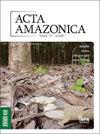Mercury bioaccumulation, genotoxic and biochemical biomarkers reveal the health status of yellow-spotted Amazon River turtles (Podocnemis unifilis) in an environmental protection area in the Amazon
IF 0.8
4区 环境科学与生态学
Q4 ECOLOGY
引用次数: 2
Abstract
ABSTRACT Chelonians are considered good bioindicators of environmental quality. The assessment of the health status of chelonian populations in the Amazon is important because they are traditionally consumed in large numbers in riverine communities and sustainable use reserves. The present study aimed to evaluate the health of Podocnemis unifilis (Testudines, Podocnemididae) in an environmental protection area in the Amazon region in Brazil. We analyzed the biomarkers lipoperoxidation, carbonylation of proteins, occurrence of micronuclei and erythrocytic nuclear abnormalities, quantified metallothioneins, and evaluated mercury bioaccumulation. We generated pioneering data regarding biomarkers in wild Amazonian freshwater turtles. All biomarker responses did not vary significantly between the sexes. The occurrence of oxidative and genotoxic damage, as well as concentrations of metallothioneins was low compared to other studies. In addition, the bioaccumulation of mercury in the muscle of the animals was below the limit recommended for human consumption by the World Health Organization. Our results provide baseline data on mercury bioaccumulation and biomarker responses that can be useful for future comparisons with other freshwater turtles. The data also provide evidence that the sustainable exploitation of these turtles in the study area (Piagaçu-Purus Sustainable Development Reserve) does not pose a risk to local riverine communities, as the detected mercury concentrations are safe for human consumption. In this sense, our results highlight the importance of protected areas for the conservation of healthy turtle populations, at the same time ensuring the health of the human populations that use them as a food resource.亚马逊河黄斑龟(Podocnemis unifilis)在环境保护区内汞的生物积累、基因毒性和生化生物标志物揭示了其健康状况
摘要Chelonians被认为是环境质量的良好生物指标。对亚马逊地区车龙种群健康状况的评估很重要,因为传统上,它们在河流社区和可持续利用保护区被大量消耗。本研究旨在评估巴西亚马逊地区一个环境保护区内单足足足线虫(Testudines,Podocnemididae)的健康状况。我们分析了生物标志物脂质过氧化物、蛋白质羰基化、微核和红细胞核异常的发生,定量了金属硫蛋白,并评估了汞的生物累积性。我们生成了关于野生亚马逊淡水龟生物标志物的开创性数据。所有生物标志物反应在性别之间没有显著差异。与其他研究相比,氧化和遗传毒性损伤的发生率以及金属硫蛋白的浓度较低。此外,汞在动物肌肉中的生物累积量低于世界卫生组织建议的人类食用限值。我们的研究结果提供了汞生物累积和生物标志物反应的基线数据,可用于未来与其他淡水龟的比较。这些数据还提供了证据,证明在研究区域(Piagaçu-Purus可持续发展保护区)对这些海龟的可持续开发不会对当地河流社区构成风险,因为检测到的汞浓度对人类消费是安全的。从这个意义上说,我们的研究结果强调了保护区对保护健康海龟种群的重要性,同时确保将其作为食物资源的人类种群的健康。
本文章由计算机程序翻译,如有差异,请以英文原文为准。
求助全文
约1分钟内获得全文
求助全文
来源期刊

Acta Amazonica
PLANT SCIENCESECOLOGYZOO-ECOLOGY
CiteScore
1.70
自引率
0.00%
发文量
34
审稿时长
22 weeks
期刊介绍:
Acta Amzonica is a multidisciplinary, peer-reviewed, open access, free-of-charge scientific journal for research in and about the Amazon region, published since 1971 by the Instituto Nacional de Pesquisas da Amazônia - INPA, in Brazil.
The journal publishes quarterly issues containing articles and short communications in English across a broad range of disciplines, including Agronomy and Forestry, Animal Sciences and Fisheries, Biodiversity and Conservation, Biotechnology, Chemistry and Pharmacology, Environmental Sciences, Food Sciences, Geosciences, Health Sciences, Human and Social Sciences, and Materials Technology.
 求助内容:
求助内容: 应助结果提醒方式:
应助结果提醒方式:


